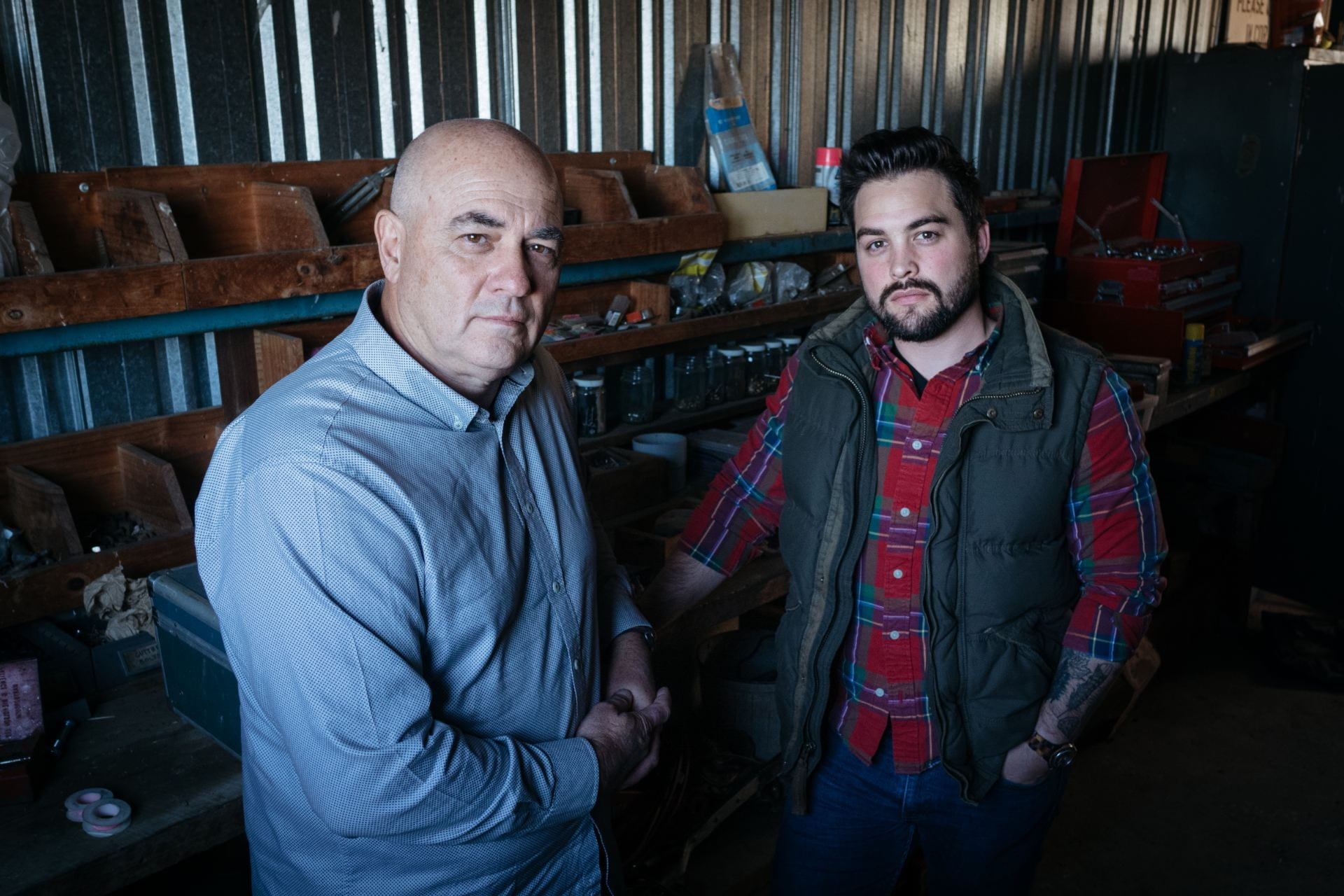A/Prof Glenn Porter and Dr Kyle Mulrooney, Directors of UNE’s Centre for Rural Criminology.
The University of New England will officially launch the world’s only dedicated research centre for rural criminology next month, in an effort to tackle the rising cost of rural crime.
The centre’s co-director and UNE criminologist, Dr Kyle Mulrooney, says rural crime costs the community and government millions of dollars in losses each year in Australia, and can have a devastating social and economic impact on communities.
“Farm crime in particular, such as the theft of livestock, produce and equipment, illegal hunting, trespassing and other crimes affect not only individuals but the wider agricultural industry, particularly as productive farmers may leave the sector as a consequence of victimisation,” Dr Mulrooney says.
“In the first six months of this year just in NSW, sheep and cattle theft alone has cost primary producers more than $1.1 million, which is incredibly concerning.
“Past studies into rural crime have shown that around half of rural crime goes unreported for a variety of reasons such as a reluctance to report and problems obtaining evidence – meaning it’s difficult to quantify and address the issues.
“Building on this primary research, the UNE Centre for Rural Criminology will focus on understanding the depth and breadth of crime issues in rural communities, including through an extensive NSW survey on rural crime we’re about to conduct,” Dr Mulrooney said.
Co-director and UNE criminologist Associate Professor Glenn Porter says it’s an important step in ensuring a relevant focus on issues impacting farmers and agricultural communities worldwide.
“For a long time, rural crime has been ignored in favour of urban crime issues in criminology. UNE criminologists were some of the earliest in the world to focus on the unique issues and impacts upon farmers and rural communities,” A/Prof Porter said.
“Through this new Centre of Rural Criminology, we have created a network of researchers focused on understanding these issues and working with local law enforcement and the community to lower crime rates and equip communities to respond to and, ultimately, prevent these crimes.
“As well as building the worldwide knowledge-base on rural crime, we’ll be working closely with our local police and community to inform evidence-based policies, resources and campaigns that will make a difference in our region and further afield,” he said.
NSW Police Force State Rural Crime Coordinator Detective Inspector Cameron Whiteside says initiatives like this play an important role in crime prevention and building community trust.
“For those working on the land it’s hard enough without the threat of crime. The challenges of running a farm and business should not be further compounded by the added stress of preventable illegal activities and criminal acts against our rural communities and industries,” Detective Inspector Whiteside said.
“Research activity and solid community engagement are excellent ways to demonstrate to those communities at risk just how serious police are about combating rural crime.
“We’re delighted that we’ll have greater insights from the community and well-informed research to help us meet the expectations and needs of the communities we’re protecting, and help us disrupt criminal activities and operations to build safer and stronger communities,” Detective Inspector Whiteside said.
The UNE Centre for Rural Criminology will be officially launched in the Armidale Town Hall on 9 September 2019, 5:30–7:30pm. Members of the community are invited to come along to find out more about the issues, impact and cost of rural crime from world-leading criminologists and the NSW Police Force. Register via Eventbrite.



Recent Comments